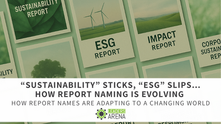Can China become a global leader on ESG?
- Aug 18, 2025
- 3 min read
Updated: Aug 19, 2025
Headwinds in the US and the recent EU regulatory retrenchment offer China a golden opportunity to take a leadership role in the ESG arena.

How are the traditional ESG poles shifting?
Mandatory climate reporting is coming to China. Earlier in 2025, China’s Ministry of Finance issued an ISSB-aligned draft Corporate Sustainability Disclosure Standard 1 focused on climate data, which ha
by international stakeholders, notably the Principles for Responsible Investment.
Exchanges in Shanghai, Shenzhen and Beijing have already released sustainability report guidelines effective since May 2024, with further implementation rules rolled out in 2025.
China’s carbon market is expanding fast. Beijing approved an expansion of the national Emissions Trading System beyond power to steel, cement and aluminium in 2025, which could cover more than 60% of China’s emissions—by far the world’s largest covered pool.
Meanwhile, there is a relative vacuum elsewhere. The EU has reduced the number of ESRS reporting metrics of its flagship Corporate Sustainability Reporting Directive (CSRD) to one-third of what was initially approved. According to some estimates, the number of companies having to adopt CSRD versus the initial scope has been reduced by 90%. This is part of a drive to simplify and limit the scope of application of various EU sustainability reporting initiatives.
In the US, the political pushback on ESG continues. In response to that, we are witnessing how a growing number of US companies are scaling back their Sustainability reporting efforts, with Diversity, Equity and Inclusion (DEI) being a focal point.
But how will these two divergent directions play out over time?
A. In the short-term
Is a global lead on ESG by China possible before 2028?
Despite China already being the global leader in the ETS market, the following 3 short-term drivers must be considered:
Reporting scopes and enforcement in China are still evolving. Exchange guidelines are new and not uniformly mandatory for all issuers; assurance capacity and penalties are still maturing.
The short-term Chinese focus is on Environmental reporting, while Social or Governance reporting lags behind. China’s near-term emphasis is on climate and industrial emissions. Social and governance transparency, for instance, on supply-chain labour and board independence, remains less developed than the EU frameworks.
Global norm-setting still sits with ISSB and the EU. Even with the EU retrenchment, CSRD/ESRS and ISSB remain the external reference frameworks for cross-border investors; China’s reporting system is aligning but not supplanting them.
Therefore, although a change in momentum is already well underway, an overall ESG leadership shift towards China is not feasible in the short term.
B. Long-term
Could ESG leadership tilt towards China from 2028?
Let’s consider 5 key long-term drivers to answer this question:
The approval of the final China Ministry of Finance Sustainability Standards and its implementation by businesses across China will be important milestones.
The implementation of the ETS carbon trading expansion will support China’s climate leadership due to the extension of market coverage into steel, cement and aluminium and the tightening of allowances.
Exchange reporting guidelines are likely to be embraced by a growing number of Chinese companies.
Given the EU’s reporting scope reduction efforts, China’s relative stringency (at least on climate) will look stronger in comparison and be more impactful to supply-chain buyers.
US policy continued anti-ESG headwinds will continue to put pressure on global investors to de-prioritise ESG.
To conclude, in the long term, we expect China to lead in climate-centric corporate disclosure and carbon trading mechanisms (ETS) that matter for global supply chains.
Overall, Chinese companies are likely to increase Sustainability reporting efforts, in sharp contrast with the drive to reduce the scope of Sustainability reporting and overall ESG ambitions in the European and US markets.
However, China will more likely form a parallel ESG pole aligned with (not replacing) ISSB and EU reporting frameworks. China is unlikely to develop its own comprehensive mandatory reporting rules on all sustainability areas capable of setting an alternative global reporting standard.
In any case, China represents an exciting growth opportunity in the ESG space at a time when the EU and the US are streamlining their ESG ambitions.
Leaders Arena will continue to monitor the rapidly evolving international ESG arena. Watch this space!
Leaders Arena has been a leader in ESG advice since 2016. Our team focuses on helping companies with their Sustainability strategy, reporting and ESG ratings. We'll guide you every step of the way.
Email us at support@leadersarena.global to book a free chat.
We look forward to talking to you soon!






















